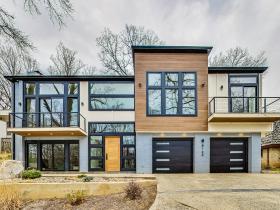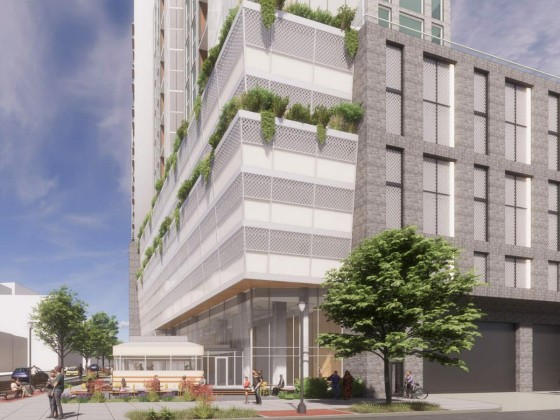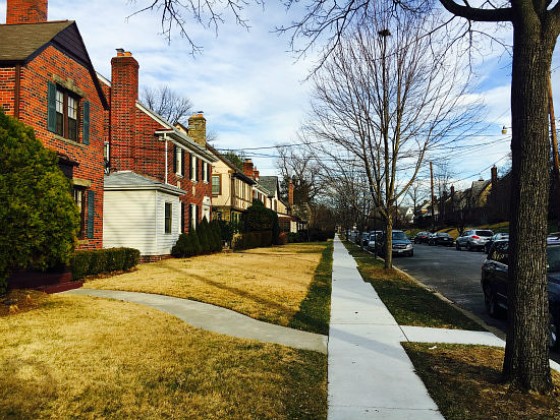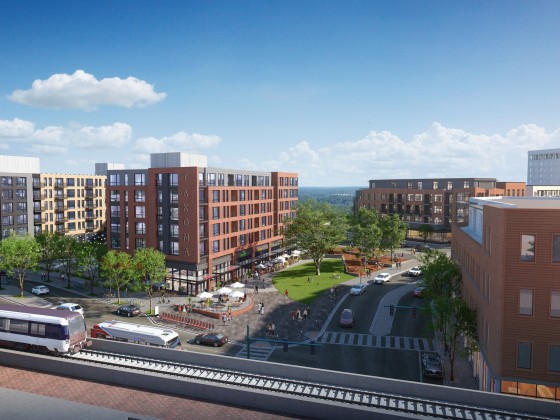 Despite Shrinking Inventory, Financing for Condo Projects Hard to Come By
Despite Shrinking Inventory, Financing for Condo Projects Hard to Come By
Over the past several months, the dark cloud that has hung over the DC area condo market since it went bust has slowly been lifting. Existing condo inventory has been hovering right below the six-month supply, and there are now less than 1,000 new condo units on the market in DC proper, compared to over 1,500 new units on the market last November.
But developers and analysts say new condo projects, particularly larger developments, are still taboo for banks that got burned during the boom and bust. As a result, financing is still pretty hard to come by.
“Once you work your way up the chain, condominiums still scare people at the higher levels who make decisions about financing,” said Mark Franceski, director of market research at McWilliams|Ballard. “They’re not ready to come in and make that kind of commitment because they’re not convinced the market is back.”
For a project to make sense for banks, a developer would have to start selling units while a project is under construction. That was the norm a few years ago, but most buyers aren’t at the point that they’d be willing to plunk down money for a unit that they haven’t seen yet.
Still, some projects are attractive to bankers, especially small-scale developments. Franceski highlighted The Harrison in Friendship Heights, where 25 of 49 units have sold even though construction won’t be complete until November.
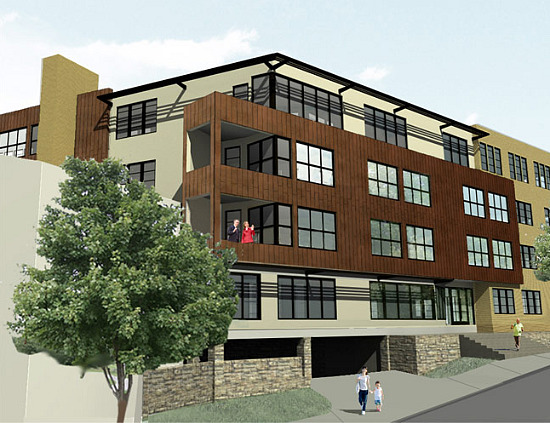
The Harrison
But pre-sales are still the exception to the rule, and as long as buyers aren’t prepared to put down a deposit and wait several years before they can move in, condo developers are going to encounter friction with lenders.
“It has to swing back to a point where if you want a new condo, you can buy a resale or wait,” Franceski said. “And people just aren’t ready to wait.”
Steve Schwat of Urban Investment Partners, which is converting apartments at 1801 and 1811 Wyoming Avenue NW to condos, agrees that banks are taking a more conservative approach to financing.
“It is never going to be as easy as it was few years ago,” Schwat told UrbanTurf. “I think you’re going to go back to where there’s a barrier to entry. Not every guy with a sheet of graph paper and a laptop is a developer.”
Schwat believes that the market has moved to a more rational position, closer to where it was before the condo boom, and banks are rightfully recognizing the risks that come with large, new projects.
“Just a few years ago, developers could get as much as 95 percent financing for a project, but the upper limit now seems to be around 60 percent,” Schwat said.
That’s not to say banks want to avoid the condo game altogether; rather, they are focusing more on projects that are building renovations rather than new construction. Those deals are more affordable and carry less risk. Local banks are also replacing some of the bigger banks as places developers choose, given their awareness of local markets.
UIP’s Wyoming Avenue buildings are being financed by Bethesda-based EagleBank and Monument Bank, also based in Bethesda, is financing Madison Investments’ 28-unit 1020 Monroe Street condominium. Sia Madani, president of Madison Investments, said that local banks are especially attracted to mid-size projects of about 10 to 30 units that can be financed for $5 million to $8 million. And he thinks that it isn’t a lack of financing that is preventing a boom of new construction, but a lack of qualified developers pursuing projects.
“Financing is there,” Madani said. “The local banks will do it. The people just aren’t credit worthy.”
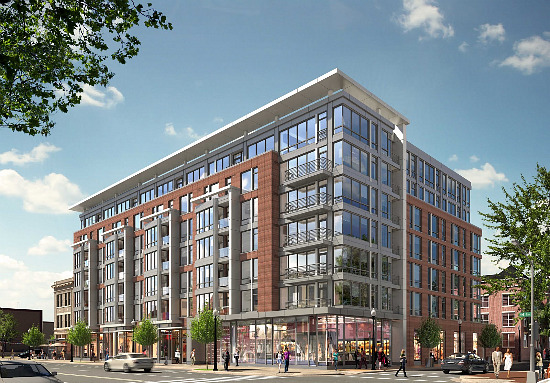
Rendering of the 125-unit JBG/Grosvenor project
John Chappelear, senior vice president for multi-family and condo operations at Kettler, agrees that financing exists, even though the cost of building a condo today is higher than it has been in recent years.
“The one rule that has changed is the banks are clearly more conservative, but having said that, they wouldn’t have loaned you the money before unless you had pre-sales,” Chappelear said.
Chappelear explained that during the condo boom, it wasn’t too difficult to pre-sell 75 percent of the units in a building, but, with few exceptions, that is not the case today.
“A market requires huge tenant demand in order to pull that off,” he said. “I don’t think it has reached that point.”
Franceski predicts that banks will be more selective as they finance the next wave of condos, leaning toward well-known developers often joining forces in strategic partnerships so that they will have the confidence that projects will be executed properly. He cited the recent partnership between London-based developer Grosvenor and The JBG Cos. on a 125-unit project near 14th and S Streets NW, the largest new condo project announced in DC in quite some time.
"It will be some time until we see 300-unit condo projects," Franceski said. "But the fact that JBG was able to get financing is an indication that reputable developers are starting to get the go-ahead for mid-sized projects."
Ryan Holeywell is a Washington, DC-based journalist whose work has appeared in USA Today, The Detroit Free Press and washingtonpost.com. He can be reached at ryan.holeywell@gmail.com.
See other articles related to: condo conversion, dc condo market, dc condos, dclofts, editors choice
This article originally published at https://dc.urbanturf.com/articles/blog/despite_shrinking_inventory_financing_for_condo_projects_hard_to_come_by/2427.
Most Popular... This Week • Last 30 Days • Ever

DC's homebuyer assistance programs can be a bit complex. This edition of First-Timer ... read »
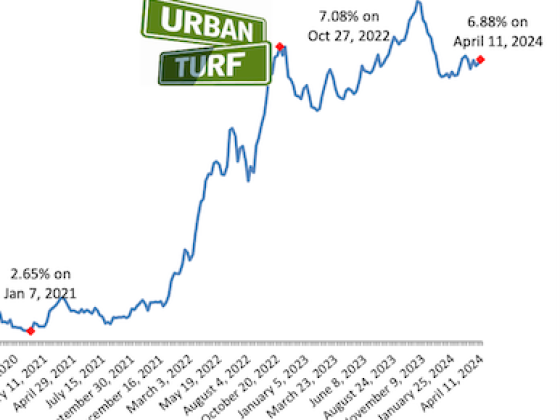
When it comes to financing a home purchase, a 30-year mortgage is one of the most com... read »
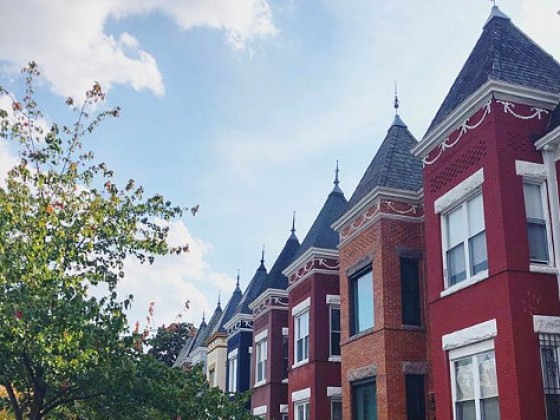
Pocket listings are growing in popularity in the low-inventory market in the DC regio... read »

Margarite is a luxury 260-apartment property known for offering rich, high-end reside... read »
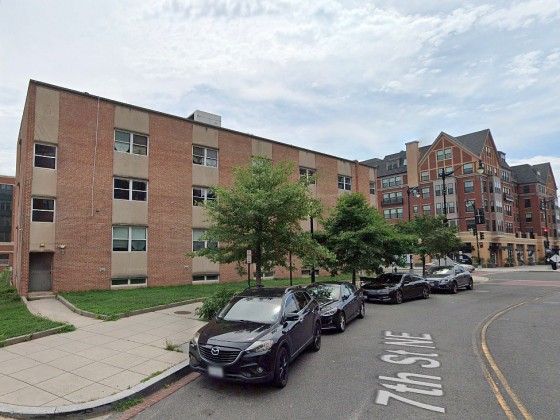
The owner of 700 Monroe Street NE filed a map amendment application with DC's Zoning ... read »
DC Real Estate Guides
Short guides to navigating the DC-area real estate market
We've collected all our helpful guides for buying, selling and renting in and around Washington, DC in one place. Start browsing below!
First-Timer Primers
Intro guides for first-time home buyers
Unique Spaces
Awesome and unusual real estate from across the DC Metro






